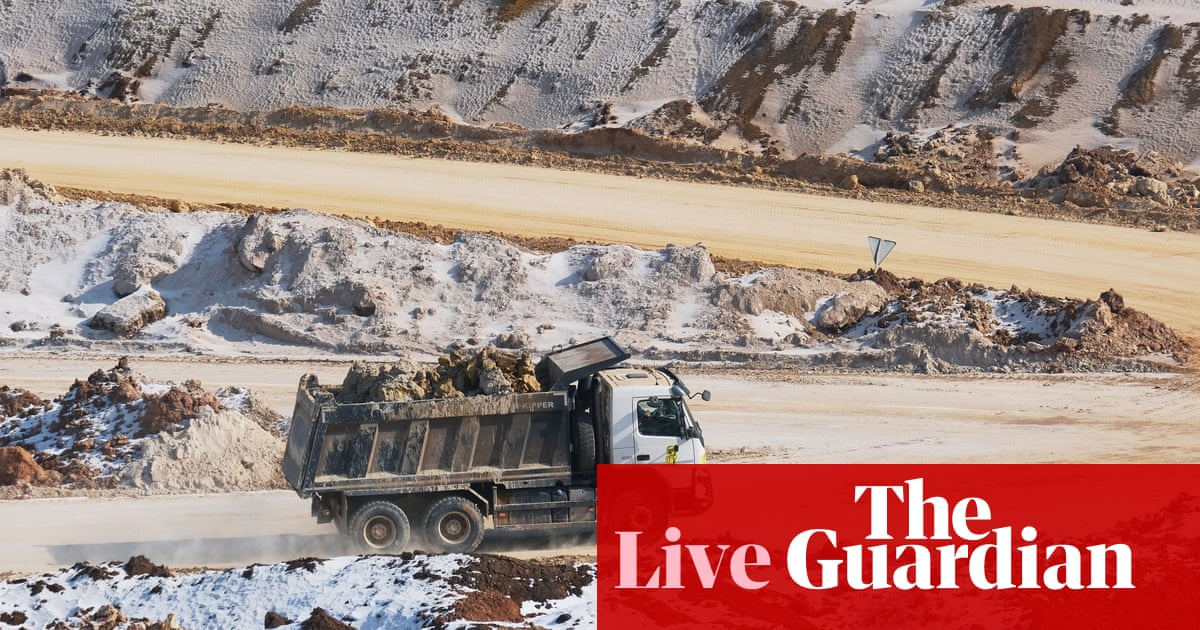Speaking at a town hall with NewsNation after the deal was signed,Donald Trumpsaid he told Ukrainian PresidentVolodymyr Zelenskyyduring a recent meeting at the Vatican that signing the deal would be a “very good thing” because “Russia is much bigger and much stronger.”
Asked whether the minerals deal is going to “inhibit” Russian leader Vladimir Putin, Trump said “well, it could.”
UK foreign secretary David Lammy has welcomed the deal between the US and Ukraine. In apost on Xhe said:
Hello and welcome to our live coverage ofUkraine, which has signed a deal to share revenues from the future sale of minerals and rare earths with the US after months of fraught negotiations.
The agreement “signals clearly to Russia that the Trump administration is committed to a peace process centered on a free, sovereign, and prosperousUkraineover the long term,” US treasury secretaryScott Bessentsaid in announcing it.
“To be clear, no state or person who financed or supplied the Russian war machine will be allowed to benefit from the reconstruction of Ukraine,” he added.
Ukraine’s prime minister,Denys Shmyhal, said on national television that the agreement, which must be ratified by Ukraine’s parliament, was “good, equal and beneficial”.
In a post on social media he said the two countries would establish a reconstruction investment fund with each side having 50% voting rights and made clear that Kyiv would not be asked to pay back any “debt” for US aid during the war.
The deal had been a source of great friction between the US and Ukraine, including adisastrous February meetingbetweenDonald TrumpandVolodymyr Zelenskyyin which Trump and his vice-president,JD Vance, shouted at the Ukrainian leader in front of live TV cameras.
Ahead of the meeting Zelenskyyhad alleged the US was pressuring himto sign over more than $500bn (£395bn) in mineral wealth – about four times what the US has contributed to Kyiv since the start of the war and which Zelenskyy had said would take 10 generations of Ukrainians to pay back.
Here’s a roundup of key developments:
Ukraine’s first deputy prime minister Yulia Svyrydenko, who was in Washington to sign the fund, said thatUkrainewould retain full ownership of resources “on our territory and in territorial waters belong to Ukraine.”There would be no changes to ownership of state-owned companies, she said and income would come from new licences for critical materials and oil and gas projects, not from projects which had already begun.
There would be no changes to ownership of state-owned companies, she said, “they will continue to belong to Ukraine”. That included companies like Ukrnafta, Ukraine’s largest oil producer, and nuclear energy producer Energoatom.
Income would come from new licences for critical materials and oil and gas projects, not from projects which had already begun, Svyrydenko said.Income and contributions to the fund would not be taxed in the US or Ukraine, she said, “to make investments yield the greatest results”.
Ukraine’s prime minister, Denys Shmyhal, said in a post on social media tht the agreement was based on five key principles, including equal voting ights bewteen the parties and no debt obligations for Ukraine.He also said the fund would not be an obstacle to Ukraine’s EU accession talks.
It was unclear up until the last moment whether the US and Ukraine would manage to sign the deal.Washington reportedly pressured Ukraine to sign additional agreements, including on the structure of the investment fund, or to “go back home”. Bessent later said the US was ready to sign though Ukraine had made some last-minute changes.
